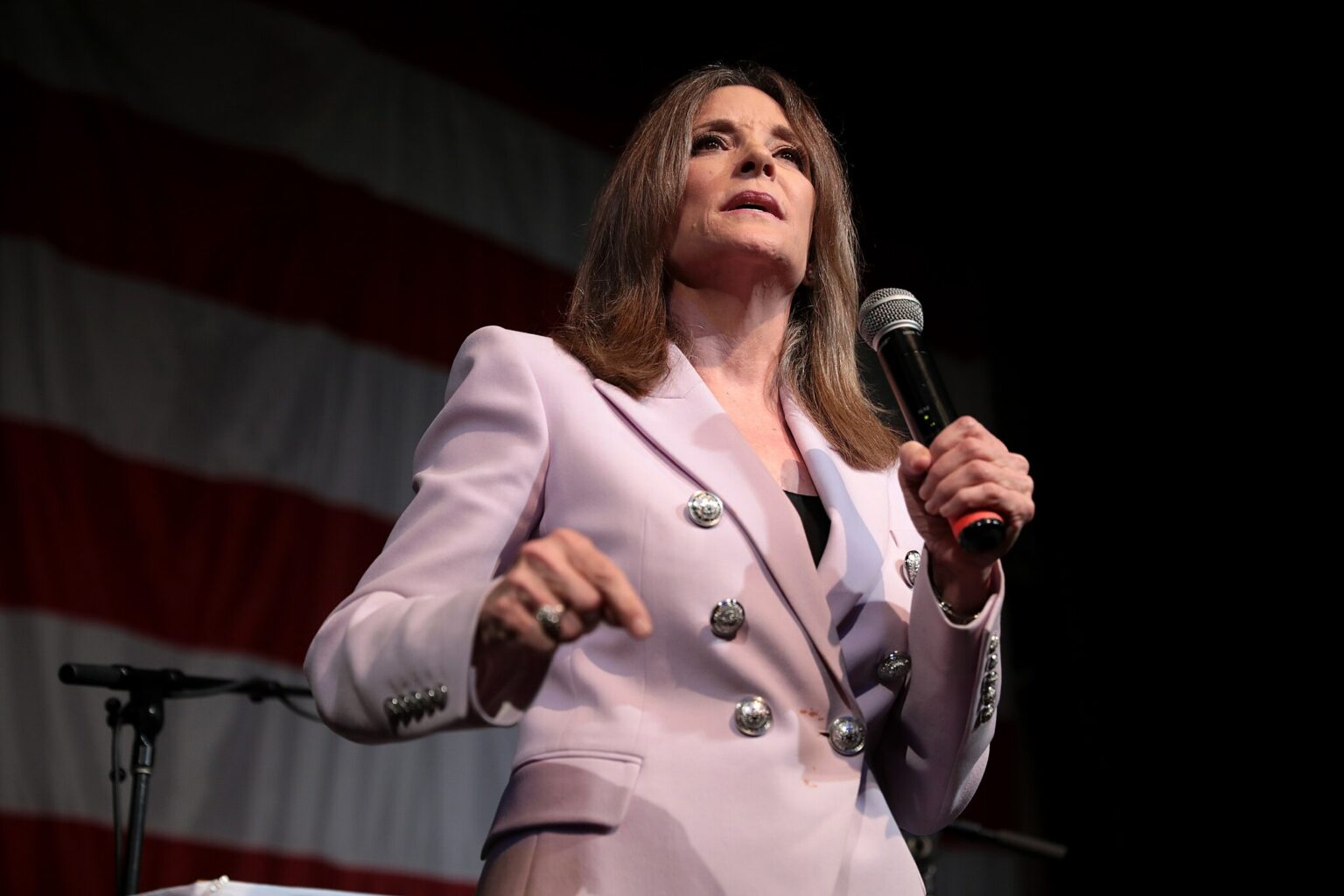Marianne Williamson, a spiritual teacher, author, and activist, has emerged as a unique and unconventional figure in the 2024 Democratic presidential race. With her distinct approach to politics and emphasis on love, compassion, and spirituality, Williamson brings a fresh perspective to the political arena.
Born in Houston, Texas, in 1952, Williamson has long been involved in the spiritual and self-help community. She gained prominence as a best-selling author with books such as “A Return to Love” and “The Age of Miracles,” which explored themes of personal growth, spirituality, and love. Her teachings have resonated with millions of readers and followers who seek a holistic approach to life’s challenges.
Williamson’s entry into politics began with her involvement in social and political activism. She has been a vocal advocate for various causes, including peacebuilding, environmentalism, and women’s rights. Her spiritual background has informed her belief that love and compassion should be at the heart of political decision-making, and she sees politics as a means to create a more compassionate and equitable society.
In the 2020 Democratic primary, Williamson garnered attention for her unorthodox campaign style and emphasis on addressing systemic issues through love and spiritual principles. While her campaign did not gain significant traction in terms of delegates, she captured the interest of many voters who resonated with her message of unity and healing.
Williamson’s decision to run for president in 2024 demonstrates her ongoing commitment to advancing her vision for a more compassionate and enlightened society. She aims to bring her unique perspective to the forefront of the Democratic Party, challenging traditional political norms and advocating for a politics rooted in empathy and spiritual principles.
One of the key issues Williamson focuses on is addressing income inequality and poverty. She advocates for policies that promote economic justice, including a living wage, affordable healthcare, and access to quality education. Williamson believes that by prioritizing the needs of the most vulnerable in society, we can create a more equitable and compassionate society for all.
Another area of emphasis for Williamson is the importance of healing the nation’s racial divides. She advocates for racial reconciliation, addressing systemic racism, and fostering understanding and empathy among different racial and ethnic groups. Williamson believes that healing the wounds of the past is essential to creating a more just and united country.
Williamson’s campaign also places significant importance on addressing climate change and environmental stewardship. She supports transitioning to clean energy, investing in sustainable infrastructure, and protecting natural resources for future generations. Her spiritual background informs her belief in the interconnectedness of all beings and the need for responsible stewardship of the planet.
As a candidate, Williamson faces the challenge of gaining widespread recognition and support within the Democratic Party. Her unconventional approach and emphasis on spiritual and compassionate principles may resonate with some voters, but she will need to effectively communicate her policy proposals and build a broad coalition of support to make a significant impact on the race.
Regardless of the outcome, Williamson’s candidacy brings an alternative perspective to the Democratic primary and invites a broader conversation about the role of love, compassion, and spirituality in politics. By emphasizing the importance of addressing deep-rooted issues through a holistic and empathetic lens, she challenges traditional political paradigms and invites voters to consider a new approach to governance.
In the coming months, Marianne Williamson will continue to share her vision for a more compassionate and enlightened society, engaging with voters and addressing the key issues facing the nation. Whether or not she secures the nomination, her campaign serves as a reminder of the diverse voices and perspectives within the Democratic Party and the broader political landscape.
